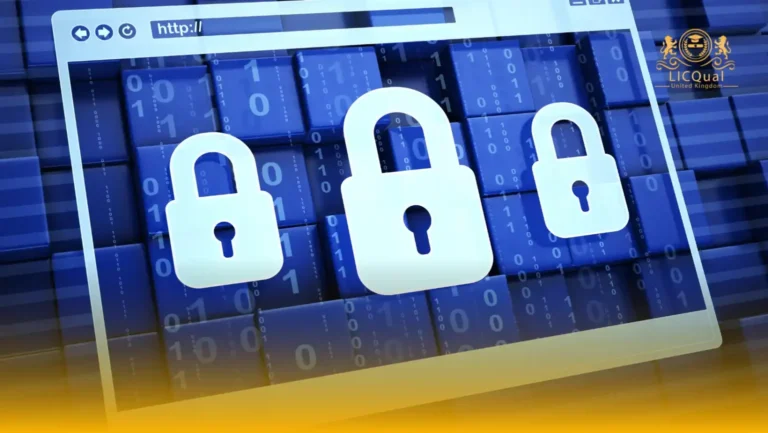Delivery Phase of the Assets
The LICQual ISO 19650-2:2018 – Delivery Phase of the Assets Lead Auditor course is a specialized program designed to equip learners with the expertise required to audit digital information management systems during the delivery phase of construction and infrastructure projects. Based on the internationally recognized BIM standard, the course enables learners to evaluate compliance and effectiveness in managing information across the asset delivery lifecycle.
Learners gain a detailed understanding of ISO 19650-2:2018 processes, including information development, approval, exchange, and control during design and construction stages. Emphasis is placed on collaborative workflows, common data environments, structured information exchange, and defined stakeholder responsibilities.
Through practical audit scenarios and applied learning activities, learners build competence in audit planning, documentation review, evidence evaluation, and reporting aligned with ISO 19650-2:2018 requirements. Upon completion, learners achieve a globally recognized LICQual certification, demonstrating the capability to lead audits that support digital construction governance, compliance, and continual improvement in asset delivery.
Course Overview
Qualification Title
LICQual ISO 19650-2:2018 – Delivery Phase of the Assets Lead Auditor
Total Units
6
Total Credits
40
GLH
120
Qualification #
LICQ2200434
Qualification Specification
To enroll in the LICQual ISO 19650-2:2018 – Delivery Phase of the Assets Lead Auditor applicants must meet the following criteria:
|
Qualification# |
Unit Title |
Credits |
GLH |
|---|---|---|---|
|
LICQ2200434-1 |
Fundamentals of ISO 19650-2 and Audit Frameworks |
8 |
24 |
|
LICQ2200434-2 |
Audit Planning and Preparation for ISO 19650-2 |
8 |
24 |
|
LICQ2200434-3 |
Evaluating Roles, Responsibilities, and Compliance Structures |
6 |
18 |
|
LICQ2200434-4 |
Auditing the Common Data Environment (CDE) and Information Exchange |
6 |
18 |
|
LICQ2200434-5 |
Conducting the Lead Audit – Techniques and Execution |
6 |
18 |
|
LICQ2200434-6 |
Reporting, Follow-up, and Continuous Improvement |
6 |
18 |
By the end of this course, learners will be able to:
Study Unit 1: Fundamentals of ISO 19650-2 and Audit Frameworks
Learning Outcomes:
- Explain the core structure and objectives of ISO 19650-2:2018 in the context of information management during the delivery phase.
- Understand the purpose and process of auditing information systems aligned with ISO standards.
- Identify how ISO 19650-2 aligns with broader auditing frameworks such as ISO 19011.
Study Unit 2: Audit Planning and Preparation for ISO 19650-2
Learning Outcomes:
- Develop a structured audit plan tailored to ISO 19650-2 compliance assessments.
- Identify relevant documentation for pre-audit review, including EIRs, BEPs, and IDPs.
- Conduct risk-based audit planning and define the scope, objectives, and criteria of an audit.
Study Unit 3: Evaluating Roles, Responsibilities, and Compliance Structures
Learning Outcomes:
- Assess the clarity and appropriateness of roles and responsibilities defined in project documentation.
- Evaluate whether information management duties align with ISO 19650-2 expectations.
- Identify compliance gaps related to responsibility assignments and workflow ownership.
Study Unit 4: Auditing the Common Data Environment (CDE) and Information Exchange
Learning Outcomes:
- Audit the structure and function of a Common Data Environment (CDE) according to ISO 19650-2.
- Verify proper information exchange procedures, version control, and metadata usage.
- Evaluate access controls, security protocols, and audit trails for compliance assurance.
Study Unit 5: Conducting the Lead Audit – Techniques and Execution
Learning Outcomes:
- Apply lead auditor techniques for evidence gathering, interviews, and process evaluation.
- Identify nonconformities and observations based on ISO 19650-2 compliance checks.
- Conduct audits in a professional, ethical, and objective manner in line with ISO 19011 principles.
Study Unit 6: Reporting, Follow-up, and Continuous Improvement
Learning Outcomes:
- Prepare accurate and structured audit reports detailing findings and recommendations.
- Evaluate corrective actions and follow-up measures for nonconformities.
- Promote a culture of continual improvement in information management practices across project teams.
This diploma is ideal for:
- Lead auditors and quality professionals responsible for auditing digital project delivery and information management systems
- BIM managers and coordinators seeking to expand their role into compliance and audit functions
- Project managers involved in overseeing ISO 19650-compliant construction and infrastructure delivery
- Consultants and advisors offering third-party audit services in the built environment sector
- Information managers and CDE administrators aiming to validate project data workflows against ISO standards
- Compliance officers ensuring organizational alignment with ISO 19650-2 requirements during the delivery phase
- Asset owners and client representatives needing to assess contractor and supply chain adherence to ISO practices
- Professionals with ISO 19650-1 or 19650-2 knowledge looking to gain formal lead auditor certification
- Government and regulatory personnel involved in infrastructure procurement and audit oversight
- Engineers, architects, and contractors interested in enhancing their understanding of audit expectations within ISO 19650-2
Assessment and Verification
All units within this qualification are subject to internal assessment by the approved centre and external verification by LICQual. The qualification follows a criterion-referenced assessment approach, ensuring that learners meet all specified learning outcomes.
To achieve a ‘Pass’ in any unit, learners must provide valid, sufficient, and authentic evidence demonstrating their attainment of all learning outcomes and compliance with the prescribed assessment criteria. The Assessor is responsible for evaluating the evidence and determining whether the learner has successfully met the required standards.
Assessors must maintain a clear and comprehensive audit trail, documenting the basis for their assessment decisions to ensure transparency, consistency, and compliance with quality assurance requirements.







